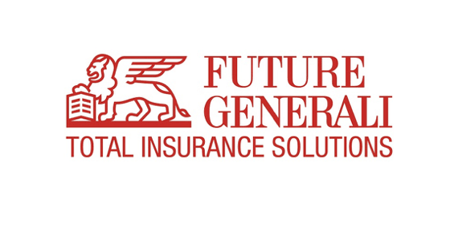
Client:Future Generali India Life Insurance
Industry:Insurance
Region:Asia Pacific & Japan
Future Generali India Life Sets Out on the RPA Journey with UiPath, Reaps Transformational Benefits

15min
reduced from 1 day in cycle time of process with automation
33
Processes automated
83%
Automation achieved in the bank reconciliation process
Client Overview
Future Generali India Life Insurance Company Limited (FGILI) is a joint venture between two leading groups: Future Group – a leading retailer in India and Generali Group- a global insurance group that features among the top 50 smartest companies in the world.
With automation of 33 time consuming manual business processes, UiPath helps Future Generali India Life improve speed by eliminating a lot of rework in processes, as well as enhance productivity by redeploying freed FTEs in other processes.
Future Generali India Life Insurance Company Limited (FGILI) is a joint venture between two leading groups: Future Group–a leading retailer in India and Generali Group-a global insurance group that features among the top 50 smartest companies in the world. It was incorporated in September 2007 with the objective of actively protecting and enhancing people’s lives. Among the fastest growing life insurance companies for two consecutive years, Future Generali India Life has secured over 13.8 lakh people’s future with 95.15% claim-settlement ratio. With 117 locations, it has presence in major cities across India. Having firmly established its credentials in this segment and effectively leveraging the skill sets of both its JV partners, Future Generali India Life has evolved to become a total insurance solutions company.
The case for automation in the Insurance business
While the group insurance application runs on AS/400 platform, there are many business processes that run outside this system, especially those related to business operations. These business processes feed into or take feed from the core insurance systems at different stages in the lifecycle of underwriting and policy issuance.
Not too far back in the past, all processes were manual; the average turnaround time was seven days. A general use case for automation at Future Generali India Life and all other insurance companies is cutting down the time taken to process new applications. For example, member data upload for policies with hefty data count is pushed through into the core system using RPA, thereby reducing manual intervention and error proneness.
According to Nilesh Dhopeshwarkar, Associate Vice President, Group Operations, Future Generali India Life, “Operations department being a cost centre can contribute to organisation’s profitability by implementing efficient and cost-effective processes. RPA is one of the enablers to achieve this objective.”
For companies such as Future Generali India Life that are the newer players in the Indian insurance industry, the capacity to scale fast and run operations with agility are an important differentiator.
Starting the RPA journey, choosing UiPath
Around mid-2017, Future Generali India Life experimented with process automation using Python, which gave it a better realization and understanding of the scope of RPA. The pilot project was selected at the Asia Leadership Group Meet as an example of innovation. This lent better executive-level support for automation initiatives. A motley group of people teamed up to look at RPA options more closely and the group considered automation options ranging from scripting to industry-standard RPA platforms such as UiPath.
One of the important areas of RPA deployment has been in issuance of group policies for corporate clients. There are almost 50 transactions daily with elaborate workflows. This was the first area taken up for automation using Python, which led to the RPA program getting underway at Future Generali India Life.
Automating policy issuance
While scripting-based automation is fine for demonstrating a discrete, well-defined area of automation, the team realized that it is difficult to sustain for multiple processes/projects. With an RPA platform like UiPath they found the implementation very easy and intuitive. The team identified a few processes to start with and chose the UiPath Platform for its simplicity, ease-of-use and openness. Policies (of all employees with an institutional client) used to send the record files of clients manually. The designated robot extracts record files from the core system and the same is then communicated to the client. Implementation of robots has bolstered data security. Every attachment sent over email by the robot is password-protected.
The insurer first identified opportunities for improvement in its management of the underwriting and issuance process. For example, manual legacy business processes often required multiple steps to verify information regarding corporate identities, policies, and open requirements with respect to underwriting.
This first step in adoption of RPA in our group processes has been extremely meaningful for us and we are glad that while some of the repetitive tasks are taken care of by robots in a predictable manner, our valuable human assets are put to more productive work. This initiative has certainly added a lot of value to us and we have extended the usage of RPA in other operations processes as well.
S Mahesh • Executive Vice President and Head – Operations Future Generali India Life
One such process is identification of employees who need to complete underwriting. This process also requires the team to login multiple times, along with frequently hopping from one screen to another in the system. These non-value-adding activities were a big reason for higher processing times. Automation brought down the cycle time from one day to 15 minutes with very high accuracy. In the manual process, errors would start mounting towards the end of the cycle because of human fatigue, but since Robots don’t get tired, they are able to maintain the level of accuracy.
“This first step in adoption of RPA in our group processes has been extremely meaningful for us and we are glad that while some of the repetitive tasks are taken care of by robots in a predictable manner, our valuable human assets are put to more productive work. This initiative has certainly added a lot of value to us and we have extended the usage of RPA in other operations processes as well,” explained Mahesh.
Bank reconciliation process automation
Future Generali India Life had a spreadsheet-based solution to assist with the transaction matching element of bank reconciliations. One specific objective was to significantly reduce the amount of time spent completing their daily bank reconciliation processes. However, there is always a degree of manual intervention required.
Using UiPath RPA, the company was able to configure the following processes:
1. Upload unreconciled bank transactions from core system and daily bank statements
Automating the upload of bank transactions from the core system and bank statements to robot was straightforward and achieved by using RPA tool.
2. Execute transaction matching process
Using the robot matching solution, it was able to configure a flexible set of rules that automatically reconciled 93% of transactions that were perfect matches. The remaining 7% comprised a combination of partially matched transactions with variances.
3. Posting to the core system
Creation of the journal adjustment file for upload to the core system was achieved using functionality. The flexible filtering and grouping options available used as the basis for generating journals for subsequent posting to the relevant entity accounts in the core system.
4. Preparation of bank reconciliation statement & posting of journal adjustments to the GL
Once authorised, preparation of bank reconciliation statement in predefined format and the adjustments journal is automatically moved to core system, subsequently uploaded to the GL using a Robot.
The only manual step in this process i.e. to review and authorise the journal generated could be removed if required and all are matching, thereby making the reconciliation process fully automated.
According to Thomas Jose, Financial Controller, Future Generali India Life, “Our bank reconciliation processes achieved 83% automation touchless. If used effectively, RPA has the potential to transform finance and we are in process of automating people intensive repetitive tasks.”
Continuous improvement: the first step to continuous accounting
Over time, we would expect exceptions that require the creation of additional automatic journal definitions to be identified during the matching process. However, this would be part of the day-to-day system maintenance to ensure continuous process improvement.
The overall benefits of automation came in the form of increased human productivity and speed. These time-consuming tasks were ripe targets for transitioning to an automated framework. Besides that, FTEs were freed up for redeployment in other processes and a lot of rework in processes has been eliminated. At the time of this case study, Future Generali India Life worked with UiPath to manage and automate approximately 33 business processes.
RPA will fundamentally change how we operate, slashing the effort for routine tasks and enabling advanced cognitive applications that augment human judgment in knowledge-based processes. We have rolled out 33 processes already in our operation.
Byju Joseph • Chief Technology Officer Future Generali India Life
Roadmap for automation
Most real-life processes include unstructured data, and therefore limit the utility of commonly used RPA tools. This is where autonomic and cognitive capabilities come into play, by bringing in ability to harness unstructured information, ability to learn from experience and finally, autonomous decision making–thus obviating the need for highly complex rule engines.
Leveraging cognitive automation would extend the scope of an RPA project to include unstructured data and complex rules, but that would also increase the timelines and cost. Thus, the roadmap is to consider how benefits from initial phases can accrue to pay for future phases.
“RPA will fundamentally change how we operate, slashing the effort for routine tasks and enabling advanced cognitive applications that augment human judgment in knowledge-based processes. We have rolled out 33 processes already in our operation,” said Joseph.
In conclusion, Future Generali India Life is looking to go beyond testing waters in RPA and undertake a structured roadmap development exercise. This will help determine where to take the robotics automation journey, understand the ‘Art of Possible’ and create alignment across organization on short-term and long-term goals.
Related case studies
Ready for your own case study?
Speak to our team of knowledgeable experts and learn how you can benefit from agentic automation.





